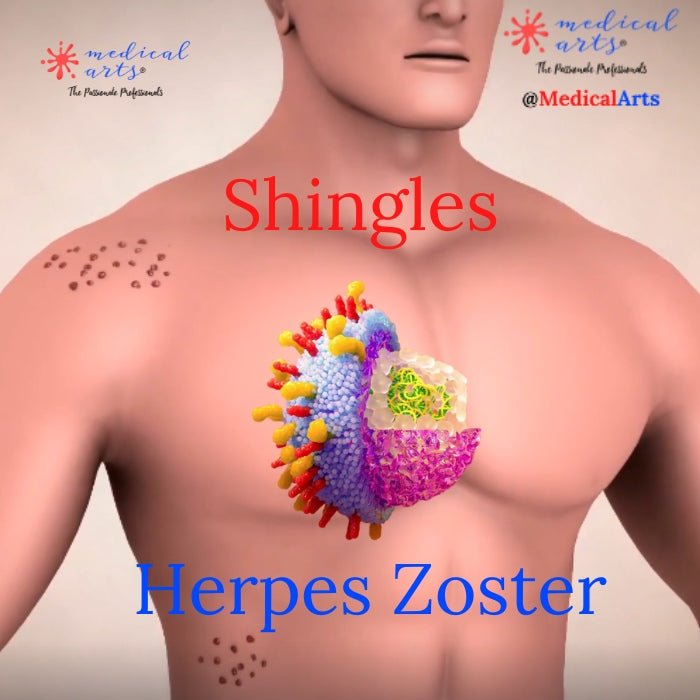Introduction to Shingles
Shingles, also known as herpes zoster, is a viral infection caused by the varicella-zoster virus. This virus is the same one that causes chickenpox in children. After a person recovers from chickenpox, the virus remains dormant and can reactivate years later, leading to shingles.
Causes and Risk Factors
The primary cause of shingles is the reactivation of the varicella-zoster virus. Factors that increase the risk of this reactivation include:- Age: The risk increases, particularly in individuals over 50.
- Weakened Immune System: People with weakened immune systems due to conditions like HIV/AIDS, cancer, or certain medications are more susceptible.
- Stress and Illness: Times of stress or illness can trigger the virus.
Symptoms and Diagnosis
The symptoms of shingles typically affect only a tiny section of one side of the body. Common symptoms include:
- Pain, burning, or tingling sensation.
- Red rash that develops a few days after the pain.
- Blisters that break open and crust over.
- Itching.
A doctor can usually diagnose shingles based on the rash's appearance and a description of the pain. In some cases, laboratory tests may be necessary.
Treatment and Management
Treatment for shingles aims to reduce pain and the duration of the virus. Common treatments include:
- Antiviral Medications: These can help reduce the severity and duration of shingles.
- Pain Relief: Over-the-counter pain relievers or prescription medications can manage pain.
- Rest and Home Care: Adequate rest and applying cool compresses can provide relief.
Complications and Prevention
Complications from shingles can include:
- Postherpetic Neuralgia: Persistent nerve pain after the rash heals.
- Vision Loss: If shingles occur around the eyes.
- Neurological Problems: Depending on which nerves are affected.
The best prevention against shingles is vaccination. The shingles vaccine is recommended for adults over 50 and those with certain medical conditions.
Conclusion
Shingles is a painful condition that can have serious complications. Understanding the causes, symptoms, and treatment options is crucial for managing and preventing the disease. Vaccination and maintaining a healthy immune system are essential preventive measures.
Anyone experiencing symptoms of shingles should seek medical attention promptly to manage the condition effectively and minimize complications.


Comentario (1)
I was cured from herpes with his herbal remedy
He cures different health issues with herbal mixture
I got my Ex lover back with his love spell
His result is 100% guaranteed..
Great Work Keep it up Dr.……
I Like This Very Much…….
Absolutely fantastic
New cure for
Hepatitis B,
Herpes simplex virus
Herpes zoster,
Shingles,,
Cold Sore,,